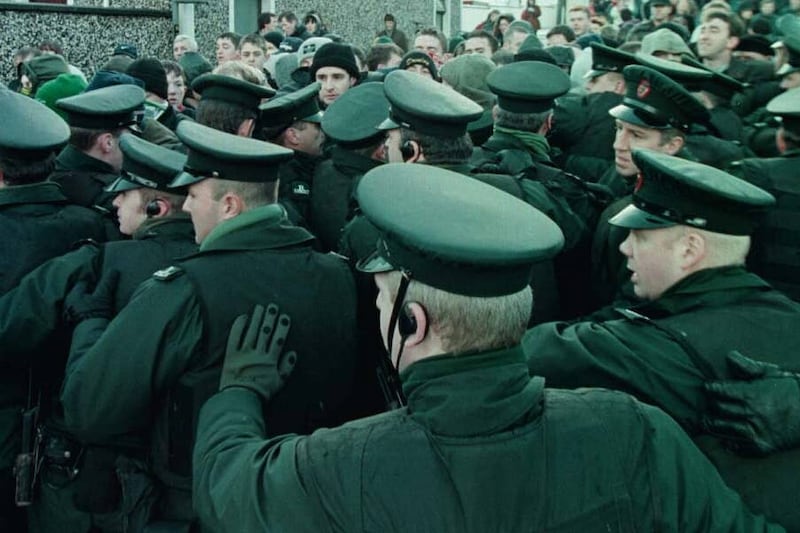August 5 1974
Detectives in Strabane last night interviewed two sisters who were tied to a lamp post outside a Catholic church after having their hair shaven off.
The girls, aged 15 and 17, were taken from their home in St Mary’s Place by four masked men who burst into the house and took them away in a car at 10.30am.
After their heads had been shaved the girls, the girls, both Catholics, were tied to a lamp post outside St Mary’s Church in Melmount Road. They managed to free themselves before people attending Mass came out of the church.
Public humiliation of women and girls, on many occasions accused of fraternising with British Army or RUC personnel, was a form of punishment meted out primarily in republican areas during the Troubles.

Strong-arm methods
The minority cannot be blamed if they are re-reading the grim history of British intervention in Ireland. Nor can they be expected to listen to the catalogue of complaints at the methods used by some British units without disgust.
We are referring to the pattern of representative methods of arrests and interrogation about which men like Father Denis Faul continue to complain. Pious disclaimers by military chiefs are not just ineffective; they are insolent as well, when the true facts emerge.
Those in control of those units cannot imagine that the victims of tough tactics, who are individually roughed up or their homes pulled about, are likely to report the ill-treatment of their military attackers. This has proved fruitless in the past, as the victims know.
It is easy enough for people to exaggerate, but the judgements on the ascertainable facts, made by responsible people, cannot always be dismissed as propaganda. Bishop [Edward] Daly of Derry spoke yesterday of British Army “intimidation and terror tactics” as a major contribution to the violence in that city.
Mr [Merlyn] Rees and his fellow ministers are presumed to be seeking policies of reconciliation in this community. These policies are in grave danger from the tactics of “leaning” on certain Catholic areas, and using notoriously tough groups of soldiers to do the leaning.







